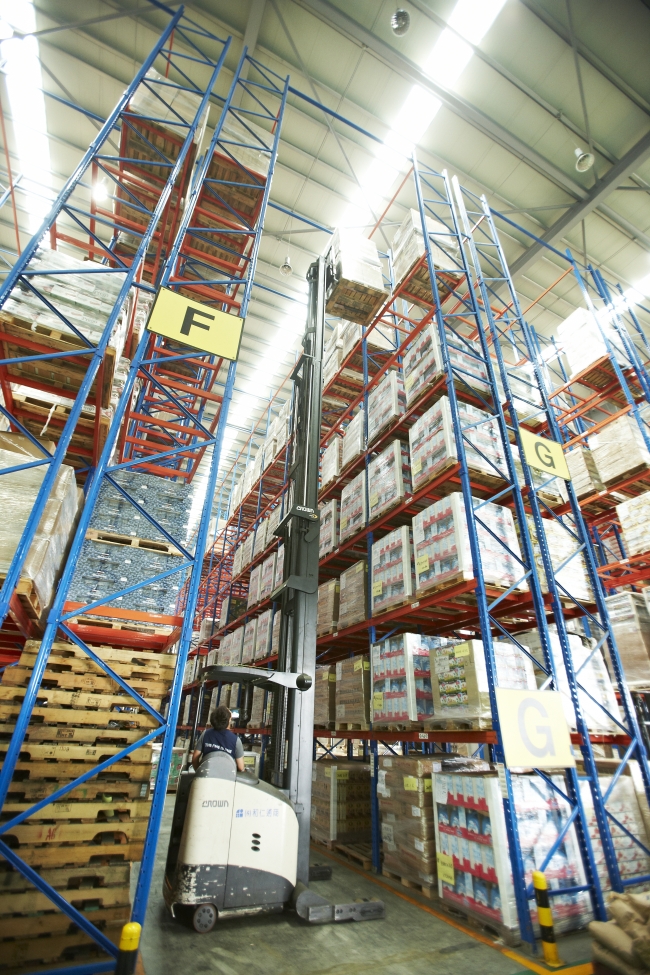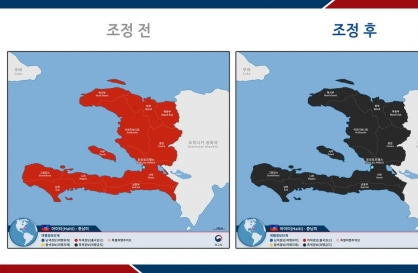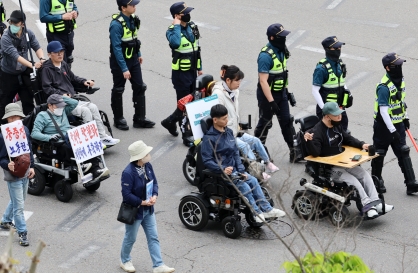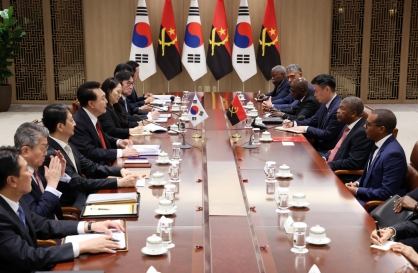Geographic advantage, low-cost rent drive port-based industrial park development
By 손지영Published : Dec. 21, 2015 - 19:18
Located at the center of maritime transportation networks in Northeast Asia, South Korea’s port-oriented industrial parks offer a business-friendly environment and strong logistics networks for local and foreign firms.
“Thanks to Korean ports that provide highly developed logistics services connected to Asia’s main ports in China and Japan, the companies operating at industrial parks in the hinterland areas of major ports can effectively transport their products to destinations to the neighboring countries through Korean ports,” said Lee Sung-woo, director of International Logistics Department at Korea Maritime Institute.
“Thanks to Korean ports that provide highly developed logistics services connected to Asia’s main ports in China and Japan, the companies operating at industrial parks in the hinterland areas of major ports can effectively transport their products to destinations to the neighboring countries through Korean ports,” said Lee Sung-woo, director of International Logistics Department at Korea Maritime Institute.

Ports are the core distribution arm of the Korean economy, where 99.7 percent of all export and import cargo was handled in 2014.
Korea has created industrial and logistics complexes, or “distriparks,” in the areas immediately surrounding the country’s five major ports including Busan, Incheon, Gwangyang, Pyeongtaek-Dangjin and Ulsan since 2006, when the government first rolled out a comprehensive program to convert the ports from gateways to Asia’s leading integrated logistics hubs,
These complexes, except those in the Incheon and Ulsan port areas, are in free trade zones, offering reductions of rental fees and diverse tax exemptions such as on tariffs, corporate taxes and property taxes, if companies meet certain conditions.
With its proximity to China, the Pyeongtaek Port‘s distripark in Gyeonggi Province, has drawn keen attention from foreign-invested companies.
“Having a hub logistics facility in Pyeongtaek is critical for logistics firms like us to target the fast-growing Chinese market. Affordable land rental rates helped a lot to build a center,” Yoo Soo-hwan, CALT Logis Pyeongtaek team manager, said.
CALT Logis, a joint venture between a Korean and Chinese firm, pays 500 won ($0.42) per square meter for monthly rental fees while other local firms pay 700 won.
As the port-led development takes shape, established logistics companies in the industrial parks have started to expand their services from their limited roles to also provide warehousing and forwarding facilities.
Now they seek to offer value-added services including packing and repacking, labeling and assembly, sorting and invoicing. Korean trading and logistics services firm Fine Trading is among them.
Established in 1995 with a humble warehouse, Fine Trading now has a main office and two logistics centers within a 5-kilometer radius around the country‘s third largest seaport of Incheon and another 10,430-square-meter center in Pyeongtaek.
“For small and mid-sized companies like us, making a purchase of land to build logistics centers is an enormous financial burden. But the Incheon Port park offers cheap land lease fees for an extensive period, which helps us a lot to expand our business here,” Fine Trading’s director Yoon Yong-ho said.
With such benefits, Fine Trading has been transformed into a third-party logistics provider that offers services beyond logistics, including value-added servicess such as quarantine, preliminary inspection and customs clearance to global retailers such as warehouse giant Costco Korea and Spanish fashion brand Zara, according to Yoon.
Some foreign-invested manufacturing companies also opt for the industrial parks to build new factories to maximize profits by cutting operational expenses.
In November, steel pipe manufacturer EEW-KHPC opened a plant in Gwangyang, South Jeolla Province, after securing an investment of $11 million from German steel firm Erndtebruecker Eisenwerk beteiligungs-GmbH.
“There are multiple reasons why we chose the location. The park is in immediate proximity to the port, which helps us to reduce logistics cost to ship pipes overseas and it also offers full exemption of land rental rates,” EEW-KHPC director Kim Jae-deuk said.
The Korea-based joint venture manufactures pipes out of thick steel plate supplied by POSCO’s Gwangyang Steel Works, one of the world’s largest steel mills.
As the government plans to set up efforts to form industrial clusters within port hinterlands, KMI director Lee said that diversifying business portfolios of existing firms and new comers is a decisive factor for further development.
“To vitalize the distripark and stay competitive in the intense global logistics race, the maritime authorities need to attract firms in various industry sectors,” he said.
By Park Han-na (hnpark@heraldcorp.com)


















